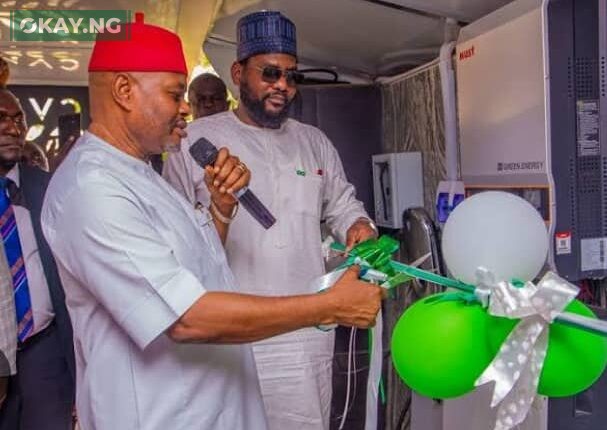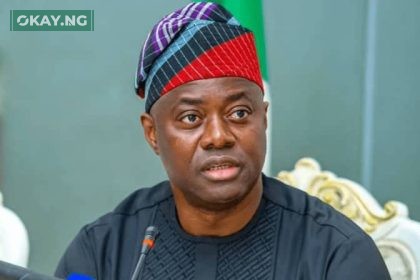In a move signaling a definitive shift towards sustainable energy solutions, the Federal Government, through the Ministry of Innovation, Science and Technology, has officially commissioned an Electric Vehicle (EV) Charging Station in Abuja. This landmark project, launched in partnership with the Electric Motor Vehicle Company (EMVC), aims to accelerate Nigeria’s transition to cleaner transportation, aligning with global efforts to combat climate change.
“This is a significant step towards advancing Nigeria’s transition to sustainable energy solutions,” stated Minister Uche Nnaji, as reported by the News Agency of Nigeria (NAN). The charging station, located at the Energy Commission of Nigeria (ECN) headquarters, is a tangible manifestation of President Tinubu’s Renewed Hope Agenda, which emphasizes reducing fossil fuel dependence and promoting green innovation.
The station’s design, as detailed by Dr. Mustapha Abdullahi, Director-General of ECN, underscores a commitment to both durability and sustainability. Equipped with a kilowatt solar-powered installation, a 20-kilowatt Lithium Battery, and a BVA intelligent inverter, the facility leverages both public grid and solar photovoltaic (PV) energy. Notably, it offers fast-charging capabilities, allowing for a full EV charge in approximately 30 minutes. “This project aligns with Nigeria’s climate change goals and clean energy policies aimed at achieving net-zero greenhouse gas emissions, using solar energy,” Abdullahi explained.
For everyday Nigerians, this station represents more than just a technological advancement; it symbolizes a potential future where cleaner air and reduced fuel costs become a reality. Imagine, for a moment, the implications: reduced noise pollution in bustling urban centers, a diminished reliance on fluctuating global oil prices, and the creation of new, green jobs. As Minister Nnaji emphasized, “We must ensure that electric mobility becomes a viable and widespread reality in Nigeria, contributing to the nation’s sustainable transportation goals.”
Read Also: Stanbic IBTC, Autochek Target N100bn in Auto Loan Disbursals by Year’s End
EMVC, recognized as the first of its kind in Nigeria, deserves commendation for its technical partnership. However, the success of this initiative hinges on widespread adoption and scalability. As I consider the practicalities, questions arise: Will the infrastructure expand rapidly enough to meet growing demand? Will the cost of EVs become accessible to a broader segment of the population? And will the power grid, often strained, reliably support the increased electricity demand?
The Minister’s call for a “collective effort to expand this initiative across the country” is crucial. To realize the full potential of this project, a multi-faceted approach involving government incentives, private sector investment, and public awareness campaigns is essential. We, as citizens, must also embrace this shift, recognizing that sustainable transportation is not merely a policy objective, but a necessary step towards a healthier and more resilient future.
Nnaji’s reaffirmation of the ministry’s “unwavering commitment to implementing policies and initiatives that foster technological advancement, attract both local and international investment, and create sustainable employment opportunities within the green economy” offers a promising outlook. This Abuja charging station is a beacon, illuminating the path towards a greener, more sustainable Nigeria.












